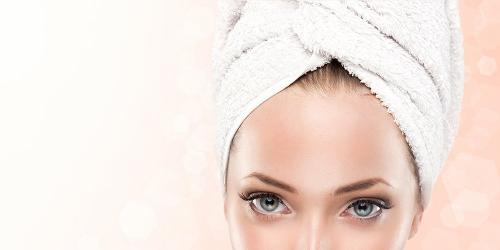Sweating is a normal and essential phenomenon, which regulates body temperature.
It also fulfills the dual challenge of preserving the temperature at the surface of the skin at 32 ° C while ensuring that it does not exceed 37 ° C internally.
For this, our brain thermostat monitors blood temperature. If it rises too much, the sweat can evacuate the overflow of heat.
All uneven in the face of perspiration
In the face of stress and emotion, the adrenal glands come into action and release the adrenaline hormone.
The corollary? Immediate activation of the sympathetic nervous system that triggers sweating. Why are some more "flooded" than others? By purely individual sensitivity.
Note that apart from spicy foods, which mechanically enhance the internal temperature, no food influences sweating. However excess carbohydrates would exacerbate perspiration. This would involve anomalies in the regulation of insulin activity.
Choosing an antiperspirant rather than a simple deodorant
"In case of strong perspiration, a" detranspirant "deodorant is used which contains sudo-regulating aluminum salts, moisture absorbers and antibacterials, since the classic deodorant does not offer anti-water action, even the stone of alum.
It traps only malodorous compounds and inhibits bacterial proliferation, which is a source of odors. Aluminum salts reduce the pore diameter of the skin, limiting the sweat flow by up to 60%.
Hence the use, for the remaining 40%, of powders of volcanic rocks which convert the absorbed moisture into imperceptible vapor. No sponge effect but a dry haze to the touch. Salts of pidolate or zinc gluconate reinforce the neutralization of odors, "explains Annabel Mari, Scientific Director of the Mixa brand.
Problem: they are suspected to play a role in the development of breast cancer and are regularly debated.
Botulinum toxin, a solution against excessive sweating
Botulinum toxin dries armpits prone to hyperhidrosis (excessive sweating). Injected into the dermis, the product prevents the micro-muscles that envelop each sweat gland from contracting to excrete sweat.
Ten to fifteen injections are carried out on a surface of 4 to 8 cm 2 per armpit, spaced 1 to 2 cm apart. In three to four days, sweating subsides before disappearing after three weeks. The benefit lasts three to four months after the first session, then extends from six to eight months from the second session to an annual meeting thereafter.
Not reimbursed, it takes from 350 € to 600 € the session.
Note: a new device (MiraDry) promises to eradicate sweating in one or two sessions, destroying the sweat glands by a short microwave thermal process (from 1800 € to 2500 € the session). But there is a lack of retreat, few studies giving a high level of evidence of effectiveness. To be continued.
Thanks to Dr. Pierre Nys, endocrinologist-nutritionist and author of "Protecting and treating his thyroid" (Leduc.s), Dr. Anne Le-Pillouer-Prost, dermatologist, and Annabel Mari, Scientific Director of the Mixa brand.


